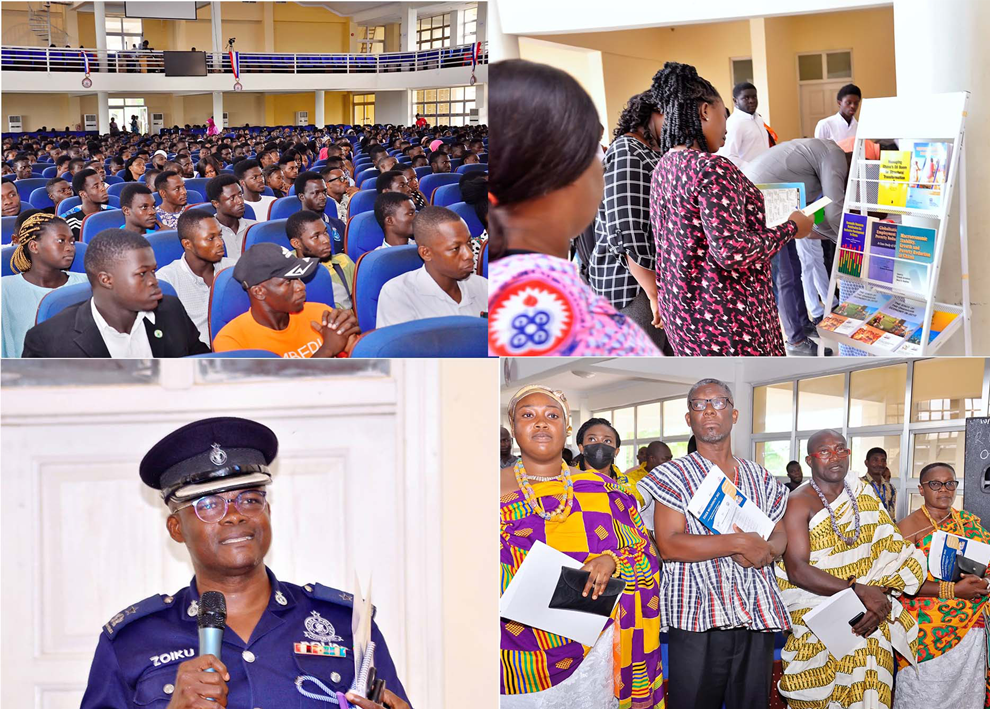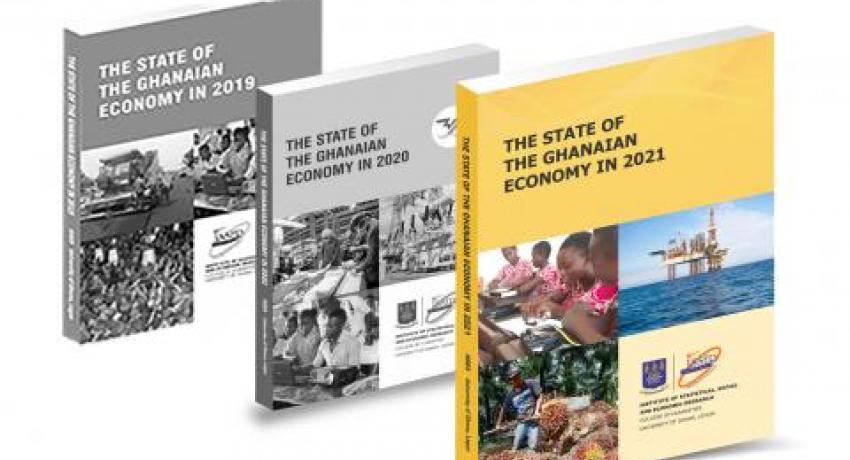The Institute of Statistical Social and Economic Research (ISSER) is set to launch the 31st edition of its flagship report on the economy of Ghana, the State of the Ghanaian Economy Report (SGER) 2021.
The SGER is an expert analysis of the performance of the economy of Ghana in a given year, with recommendations to provide guidance toward improved performance. It is based on real data from the various economic sectors, analysed by qualified and experienced economic experts.
As ISSER Director, Prof. Peter Quartey recounts, ISSER started the SGER in 1992 to help bridge a critical information gap and provide people with a resource that can be trusted for objective, independent and authoritative analysis of the Ghanaian economy.
“Three decades down the line, the SGER continues to live up to this objective and it is as relevant today as ever, if not more so,” says Prof. Quartey.
The report is valued by diverse communities of people in and outside Ghana, including students, policymakers, businesses, and other interested publics, who look forward to each new edition.
“The SGER is one of the key markers of ISSER’s commitment to promoting knowledge for development,” he adds.
It is issued by the Economics Division of the Institute and follows a specific structure. The first of the eight-chapter report presents the overview, which discusses global economic developments and Ghana’s economic performance. Chapter two considers fiscal developments, chapter three is on monetary and financial developments, and chapter four discusses international trade and payments. The next three chapters, five, six, and seven focus on three key sectors, the agricultural, industrial, and service sectors respectively. The eighth chapter, called the optional chapter, is usually dedicated to examining a pressing issue that could have considerable impacts on the lives and livelihoods of people. For instance, the optional chapter for SGER 2020 is focused on COVID-19 and social interventions in Ghana, and that of the current edition, SGER 2021 on inequality trends in Ghana.
ISSER continues to receive overwhelmingly positive feedback from readers who praise the SGER for its comprehensive and objective representation of Ghana’s economy. But issuing this publication has not been without challenges.
Access to timely data for research work a challenge
According to Prof. Quartey, obtaining secondary data in a timely and appropriate form has been a perennial challenge that SGER authors grapple with, often leading to delays and disruptions in publication schedules.
“If obtaining real data is still the challenge it is today, one can only imagine the situation when this publication started over three decades ago. So, for ISSER to have kept the SGER going for 31 years and counting, is a feat which we are proud of.”
Nonetheless, the Institute is very willing to address, as practicably as possible, concerns relating to the seeming delay in issuing the SGER. This includes working with institutions that are custodians of data to find solutions that would help ease timely access.
“We aim is to issue the Report as early as possible,” Prof. Quartey points out, “at the same time, we are careful not to be pressured to cut corners or rush the careful and thorough academic work that we must necessarily invest into the SGER. So timely data remains a primordial factor in moving us towards our aim.”
In the meantime, the recently-introduced ISSER quarterly economic performance review is helping bridge the gap.
ISSER economic performance reviews
Held every quarter and sometimes in conjunction with the launch of the SGER or other institutional publications (notably the Ghana Social Development Outlook), this dissemination and stakeholder engagement activity affords the Institute platform to provide analysis and commentary on current socio-economic issues.
Characterised by more recent data and analysis, the quarterly economic performance reviews provide a basis for comparative analysis and reflections, while compensating, to a large extent, for the time lapse between the issues in the SGER and intervening developments.
Besides its quarterly economic performance reviews, ISSER also engages policymakers, the media, and the public in other research advocacy activities – including post-budget reviews and roadshows – which make it possible to illuminate public dialogue and policy decisions with research-based discussions.

A call for increased support for research
Prof. Quartey called for increased support for research. Acknowledging the Agricultural Development Bank (ADB), Ghana, Stanbic Bank Ghana, and other donors for their valuable support toward ISSER’s research and advocacy activities, he called for broader support for quality research work as this is essential in advancing sustainable development.
Increased support for ISSER, particularly the SGER is key, especially at this time that the Institute has started arrangements to make the Report available online, possibly as an open-access book so that more people can benefit from the acclaimed economic report.
“As an institute, we remain committed to supporting the development process with robust and objective research, and it is our hope and expectation that this important element of providing cutting-edge research that informs policy will be given the increased attention and support that it truly deserves,” he concluded.
The SGER 2021 will be launched on October 26, 2022, at ISSER. The event will also serve to review and discuss the quarter 3, 2022 economic performance.
- Log in to post comments

